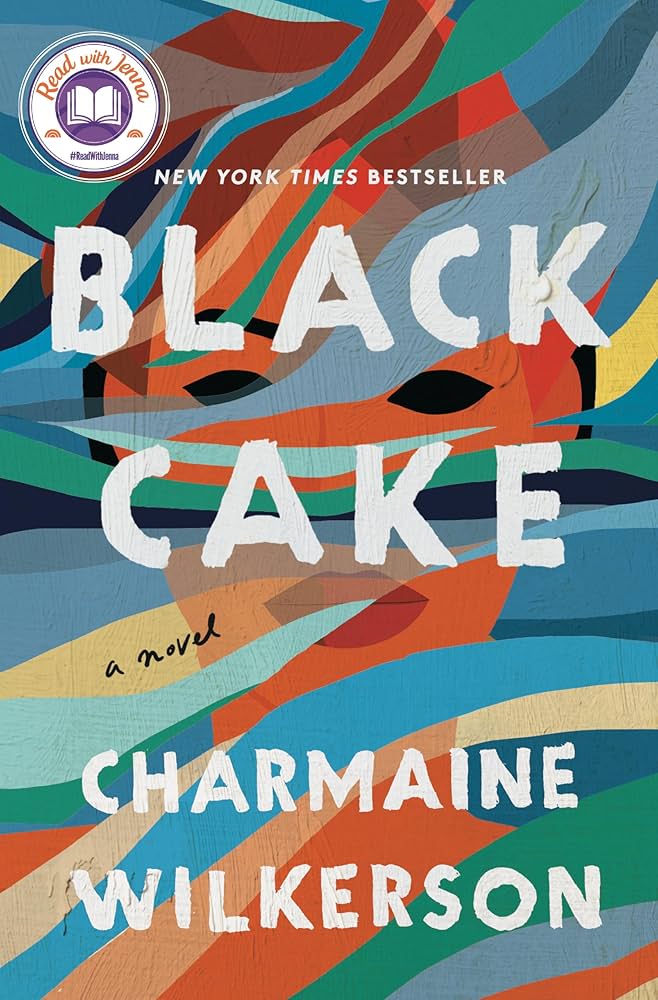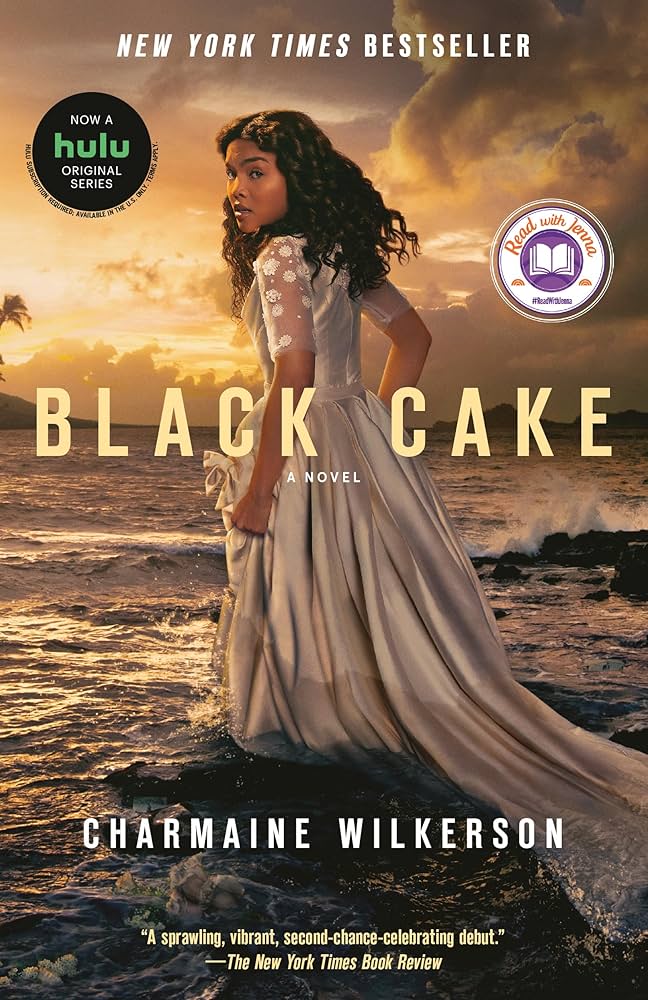*Black Cake* Book: A Deep Dive into Charmaine Wilkerson's Literary Success

Charmaine Wilkerson’s Black Cake has captivated readers and critics alike, earning numerous accolades and sparking significant cultural conversations. This comprehensive exploration delves into the novel’s themes, its author’s background, its impact on readers, and its broader literary and cultural influence. We will examine the book through the lenses of genre, character development, storytelling techniques, and its reception within various communities and platforms.
The Novel: A Multi-Generational Saga
Black Cake, classified as a contemporary and historical fiction novel with elements of family saga and mystery, unfolds a compelling narrative spanning decades and continents. The story centers on two estranged siblings, Byron and Benny, who inherit a black cake and a voice recording from their recently deceased mother, Eleanor. This inheritance triggers a journey of self-discovery and reconciliation as they unravel the secrets and betrayals woven into their family’s past.

The novel’s structure is unique, employing a dual narrative that intertwines Eleanor’s past with the siblings’ present. Short, sharply written chapters create a fast-paced narrative that keeps readers engaged, leaving them to piece together the story as the narrative jumps across time periods and locations. This fragmented approach mirrors the fragmented nature of memory and the uneven distribution of family history, effectively highlighting the complexities of inherited trauma and the search for identity.
The black cake itself serves as a powerful symbol. It is a traditional Caribbean recipe passed down through generations, reflecting a continuity of culture and identity amidst change and upheaval. The act of sharing the cake becomes a crucial aspect of Eleanor’s final request, representing a potential path to healing and understanding for her children.

Themes Explored in Black Cake
Black Cake grapples with several significant themes:
-
Identity and Heritage: The novel explores the complexities of racial identity, particularly for Caribbean Americans navigating the complexities of their heritage in a predominantly Western society. The characters grapple with their multi-faceted identities, shaped by their ancestry, cultural background, and personal experiences.
-
Family Relationships: The strained relationship between Byron and Benny forms a central conflict. Their mother’s revelations bring to light past resentments, betrayals, and unspoken expectations, forcing them to confront the lasting impact of their family dynamics. The novel highlights the enduring power of family connections, even when marred by conflict.
-
Secrets and Betrayal: The narrative is driven by the discovery of long-hidden family secrets, impacting how the siblings understand their heritage and family relationships. Betrayals, both personal and societal, have far-reaching consequences that reverberate through generations.
-
Resilience and Redemption: Despite facing immense challenges, including racism, societal pressures, and personal traumas, the characters in Black Cake demonstrate remarkable resilience. The novel suggests the possibility of redemption and healing, even after enduring significant losses and betrayals.
-
Environmental Concerns: Although less prominent than other themes, the novel touches upon the importance of environmental sustainability and the impact of human actions on the natural world. This theme underscores the interconnectedness of human lives with their environment.
Charmaine Wilkerson: Author and Inspiration
Charmaine Wilkerson, the author of Black Cake, is an American writer with experience living in Jamaica and currently residing in Italy. Her background as a former journalist brings a keen eye for detail and a sharp narrative style to her work. Wilkerson’s award-winning short fiction has previously been published in various magazines and anthologies, establishing her reputation as a skilled storyteller before the publication of her debut novel.
Wilkerson’s writing style is characterized by its evocative language, creating a vivid sense of time and place. She seamlessly blends the historical with the contemporary, drawing readers into the lives of her richly developed characters. The narrative’s fluid transitions between past and present, as well as between different characters’ perspectives, are a testament to her skill as a storyteller.
The inspirations behind Black Cake are likely rooted in Wilkerson’s own experiences and observations of family relationships, cultural heritage, and the complex interplay between personal identity and historical context. The intricate plot suggests extensive research and a deep understanding of the historical and social landscapes that shape the lives of her characters.

Reading Black Cake: A Reader’s Journey
The unique structure of Black Cake, with its short, impactful chapters and shifting perspectives, is a significant part of its allure. This fragmented storytelling approach might initially feel jarring, yet ultimately proves effective. Readers are gradually drawn into the story, participating in the process of piecing together the family’s history.
The educational value of Black Cake lies in its exploration of multiple perspectives. It provides insights into the lives of Caribbean Americans, shedding light on their cultural heritage and the challenges they face. The exploration of themes such as identity, family dynamics, and secrets serves as a powerful tool for self-reflection and emotional growth for the reader.
Life Lessons from Black Cake
Several significant life lessons emerge from the narrative:
-
The Importance of Storytelling: The novel emphasizes the profound impact of storytelling on understanding our identities and histories. The act of sharing stories, even those filled with pain and hardship, can lead to healing and connection.
-
Confronting the Past: Black Cake underscores the importance of acknowledging and confronting our past, even when it is painful. Without confronting difficult truths, we cannot fully understand ourselves or our relationships with others.
-
Forgiveness and Reconciliation: The novel explores the challenging yet vital process of forgiveness and reconciliation. While the path to forgiveness is often complex and fraught with difficulty, it presents the potential for healing and restoring relationships.
-
The Power of Family: While marred by conflict, the enduring strength of family bonds is emphasized. The narrative demonstrates that despite betrayals and disagreements, family relationships are often the most significant and lasting in one’s life.
-
Embracing Cultural Identity: The novel’s celebration of Caribbean culture and its integration into the lives of its characters is inspiring. It highlights the importance of understanding and valuing our cultural heritage.
Black Cake’s Cultural Impact
Black Cake’s success is reflected in its widespread positive reception across various platforms. The book’s numerous awards and recognition, including its selection as a “Read with Jenna” book club pick, signify its critical acclaim and resonance with readers.
The book’s strong reviews across numerous websites, including Amazon and Goodreads, demonstrate its popularity and positive impact on readers. Readers consistently praise its compelling narrative, richly drawn characters, and the thought-provoking exploration of complex themes.
The cultural impact is evident through multiple adaptations. The novel’s adaptation into a Hulu series broadens its reach, further cementing its status as a significant piece of contemporary literature and creating new avenues for engaging with the themes explored in the book. Discussions surrounding the novel’s themes within book clubs and online communities evidence its continuing relevance and power to generate thoughtful debate.
Conclusion
Charmaine Wilkerson’s Black Cake is more than just a compelling novel; it’s a significant literary and cultural contribution. Through its unique narrative structure, richly developed characters, and exploration of timely themes, the book resonates deeply with readers, inviting self-reflection and a broader understanding of family, identity, and the power of untold stories. Its continued presence in book clubs, its adaptation into a series, and the ongoing conversations it generates demonstrate its enduring impact on contemporary literature and culture.